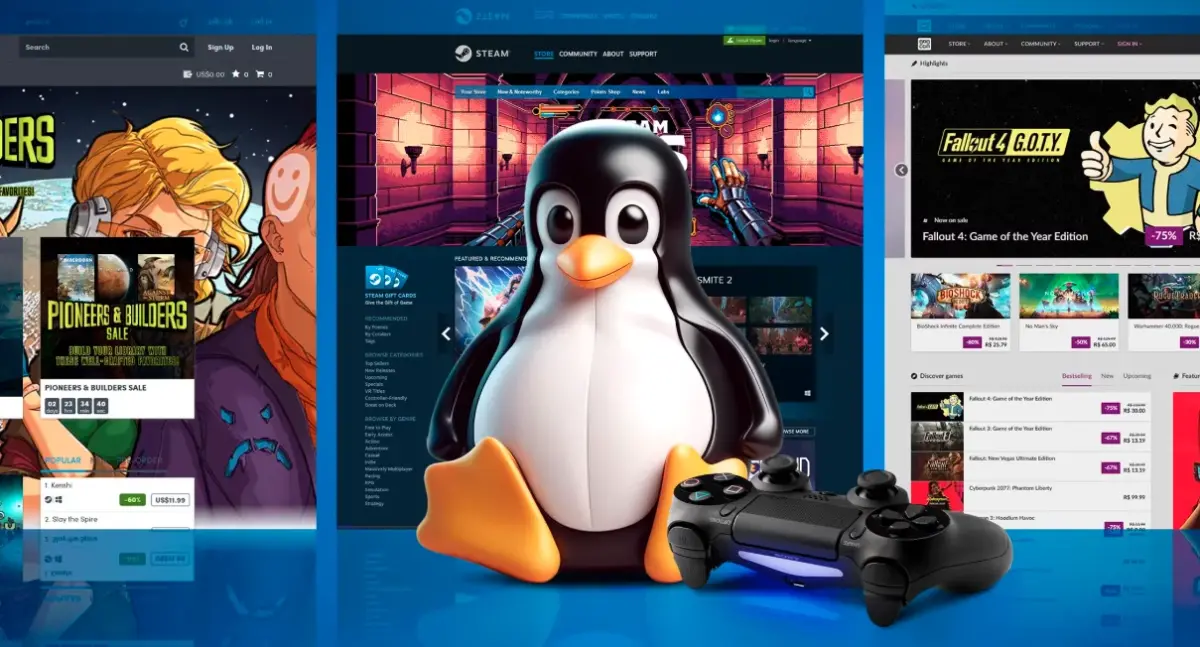For years, Linux and Mac gaming for that matter, was nothing more than a sidenote for nerds, a passion project for tech purists, if you will. It was never considered a real threat to Windows dominance in the realm of gaming, but 2025 seems to change that fact. According to the latest data from Valve’s Steam Hardware & Software Survey, Linux has crossed the 3% player base mark.
What seems like a small number at first glance, has massive implications, because, remember: Steam has over 150 million active users, so 3% means roughly 4.5 million players are kicking it on Linux. Doesn’t sound like not much now, does it? What’s more, that number appears to be climbing continuously, and that fast.
Between the Steam Deck’s unexpected success, the rise of Proton compatibility, and Microsoft’s own issues with Game Pass and increasingly closed ecosystem, Linux ceases to be the niche platform it once appeared to be. It’s now a genuinely great alternative for gamers – and that, for us, is something Windows can’t afford to ignore any longer.
The Steam Deck Was The First Step For Linux
We’re going to be candid here, if there’s one device responsible for this Linux surge, it’s Valve’s Steam Deck and the success it garnered as a handheld gaming PC, basically. Powered by SteamOS, which is a Linux-based system, the handheld has quietly become one of the most influential gaming devices of the decade. What began as a quirky experiment has evolved into a fully fledged platform that just works. Sorry again, Todd.
For us, the genius of the Steam Deck lies in its simplicity: Valve took the notoriously fragmented Linux ecosystem and streamlined it for gaming, with it’s own Steam OS no less. Through Proton, Valve’s custom compatibility layer, players can run thousands of Windows titles on Linux with almost no performance loss – and in some cases, even better optimization, although we’re still not sure about the “verified on Steam Deck” tag, but that’s an issue for another day.
That accessibility, however, has done something remarkable: it made Linux gaming approachable. Gamers who wouldn’t have touched a command line in their lives are now enjoying Elden Ring, Cyberpunk 2077, and Baldur’s Gate 3 on a Linux machine without ever realizing it. Gaming is a fascinating beast indeed.
And as the Deck continues to evolve, especially with rumors of a Steam Deck 2 on the horizon, that market share will only keep expanding. Valve essentially made Linux invisible, even if it probably wasn’t its goal – and that’s exactly what it needed to become mainstream, surprisingly.
Watch Out Windows – Linux Is Coming For Ya
As much as that headline might sound like clickbait, we’re truly convinced that the days of Windows being lazy and complacent are over. Convenience was one thing Windows just had going for it, and you didn’t need a degree from Caltech to enjoy playing games on your personal computer. Drivers, storefronts, anti-cheat systems – there was a benefit from being the only dog in the kernel.
But now, with Windows 11 being the dominant force on the market, the forced updates, telemetry concerns, and the amount of absolutely asinine inclusions such as Copilot, many players are starting to feel a tiny bit boxed in, to say the least. Linux, by stark contrast, offers freedom – much like the comparison of iOS and Android, at least back in the day.
Proton and Wine have solved the compatibility problem, a big hurdle for non-tech-savvy gamers, which arguably kept Linux from being mainstream. Also, some of the biggest engines most devs are now working with (UE5, Unity), now support Linux builds, which further tears down the learning curve and the barrier between the two platforms is becoming increasingly thin.
So – if Linux is further improving and catering to pure gamers, without making the entry hurdle so tough to overcome, there is a stark chance that Linux will ascend from underdog, to real alternative to Windows. If that doesn’t make Microsoft wake up and change a couple things, this momentum could realistically become a real problem. Now, we’re not saying Linux is going to overthrow windows, but it sure is on the verge of reminding the gaming industry what true freedom truly looks like.






